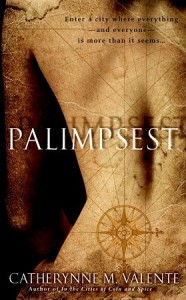Translated by George Bird
Synopsis:
Aspiring writer Viktor Zolotaryov leads a down-and-out life in poverty-and-violence-wracked Kiev—he’s out of work and his only friend is a penguin, Misha, that he rescued when the local zoo started getting rid of animals. Even more nerve-wracking: a local mobster has taken a shine to Misha and wants to keep borrowing him for events.
But Viktor thinks he’s finally caught a break when he lands a well-paying job at the Kiev newspaper writing “living obituaries” of local dignitaries—articles to be filed for use when the time comes.
The only thing is, it seems the time always comes as soon as Viktor writes the article. Slowly understanding that his own life may be in jeopardy, Viktor also realizes that the only thing that might be keeping him alive is his penguin.
Review:
Viktor is doing alright – his apartment is nothing special but he shares it with Misha, his penguin (long story). He just landed a job writing obits for famous people, so when they die there will be copy waiting and ready. The articles end up sitting in a drawer at the newspaper office but the money keeps Viktor in food and Misha in fish, so it can’t be all bad.
One day, however, an obit subject dies, having plummeted from a sixth story window. Then another, and another. Viktor is left to wonder what he got into, and if it’s even worth trying to find his way out.
I love this book – serious writing that doesn’t take itself too seriously. Along with the “what the…” moments are tidbits that are just absurd enough to be plausible in post-Soviet Kiev. The plot hums along at a steady pace, helped along by short chapters that go down like potato chips, one after the other. There are some nice insights, too:
The cafe was empty and quiet – an ambience suitable for dreaming, or conversely, for recalling the past.
The characters are fleshed out wonderfully and feel like real people, right down to Misha the penguin. I love that there’s another man named Misha that gets referred to as Misha-non-penguin. It’s a little joke that isn’t overplayed, wonderful restraint that applies throughout the novel, even with all the crazy.
George Bird does a wonderful job translating from the Russian. I especially like how he handles the flowery obits, such as this one for an opera singer:
The voice is a sign of life. It may grow in strength, break off, be lost, sink to a barely audible whisper. In the chorus of our lives the individual voice is not easily distinguished, but where, suddenly, it falls silent, there comes an awareness of the finitude of any sound, of any life.
The book ends on a cliffhanger with several plot threads hanging but that’s the only bad thing I can say. I was transported to another world and look forward to seeing what happens.

 Before she became internationally known for her Pippi Longstocking books, Astrid Lindgren was an aspiring author living in Stockholm with her family at the outbreak of the Second World War. The diaries she kept throughout the hostilities offer a civilian’s, a mother’s, and an aspiring writer’s unique account of the devastating conflict. She emerges as a morally courageous critic of violence and war, as well as a deeply sensitive and astute observer of world affairs. We hear her thoughts about rationing, blackouts, the Soviet invasion of Finland, and the nature of evil, as well as of her personal heartbreaks, financial struggles, and trials as a mother and writer.
Before she became internationally known for her Pippi Longstocking books, Astrid Lindgren was an aspiring author living in Stockholm with her family at the outbreak of the Second World War. The diaries she kept throughout the hostilities offer a civilian’s, a mother’s, and an aspiring writer’s unique account of the devastating conflict. She emerges as a morally courageous critic of violence and war, as well as a deeply sensitive and astute observer of world affairs. We hear her thoughts about rationing, blackouts, the Soviet invasion of Finland, and the nature of evil, as well as of her personal heartbreaks, financial struggles, and trials as a mother and writer. Dr. Rhys Gray and Miss Margaret Babcock are friends—strictly friends. But over the course of the year, as they exchange dozens of letters, they share personal details that put them on the path to something more. When Dr. Gray helps Margaret realize her dearest dream and she comes to his defense in the uproar that follows, it seems that their connection cannot be denied. But will their relationship stand the scruples of society and jealous intendeds, or are they destined to be only friends, and nothing more?
Dr. Rhys Gray and Miss Margaret Babcock are friends—strictly friends. But over the course of the year, as they exchange dozens of letters, they share personal details that put them on the path to something more. When Dr. Gray helps Margaret realize her dearest dream and she comes to his defense in the uproar that follows, it seems that their connection cannot be denied. But will their relationship stand the scruples of society and jealous intendeds, or are they destined to be only friends, and nothing more?
 Between life and death, dreaming and waking, at the train stop beyond the end of the world is the city of Palimpsest. To get there is a miracle, a mystery, a gift, and a curse—a voyage permitted only to those who’ve always believed there’s another world than the one that meets the eye. Those fated to make the passage are marked forever by a map of that wondrous city tattooed on their flesh after a single orgasmic night. To this kingdom of ghost trains, lion-priests, living kanji, and cream-filled canals come four travelers: Oleg, a New York locksmith; the beekeeper November; Ludovico, a binder of rare books; and a young Japanese woman named Sei. They’ve each lost something important—a wife, a lover, a sister, a direction in life—and what they will find in Palimpsest is more than they could ever imagine.
Between life and death, dreaming and waking, at the train stop beyond the end of the world is the city of Palimpsest. To get there is a miracle, a mystery, a gift, and a curse—a voyage permitted only to those who’ve always believed there’s another world than the one that meets the eye. Those fated to make the passage are marked forever by a map of that wondrous city tattooed on their flesh after a single orgasmic night. To this kingdom of ghost trains, lion-priests, living kanji, and cream-filled canals come four travelers: Oleg, a New York locksmith; the beekeeper November; Ludovico, a binder of rare books; and a young Japanese woman named Sei. They’ve each lost something important—a wife, a lover, a sister, a direction in life—and what they will find in Palimpsest is more than they could ever imagine.
 “Pink is my favorite color. I used to say my favorite color was black to be cool, but it is pink—all shades of pink. If I have an accessory, it is probably pink. I read Vogue, and I’m not doing it ironically, though it might seem that way. I once live-tweeted the September issue.”
“Pink is my favorite color. I used to say my favorite color was black to be cool, but it is pink—all shades of pink. If I have an accessory, it is probably pink. I read Vogue, and I’m not doing it ironically, though it might seem that way. I once live-tweeted the September issue.” Savage ambition has brought common-born Rhys Winterborne vast wealth and success. In business and beyond, Rhys gets exactly what he wants. And from the moment he meets the shy, aristocratic Lady Helen Ravenel, he is determined to possess her. If he must take her virtue to ensure she marries him, so much the better…
Savage ambition has brought common-born Rhys Winterborne vast wealth and success. In business and beyond, Rhys gets exactly what he wants. And from the moment he meets the shy, aristocratic Lady Helen Ravenel, he is determined to possess her. If he must take her virtue to ensure she marries him, so much the better… PhDeath is a fast-paced thriller set in a major university in a major city on a square. The faculty finds itself in deadly intellectual combat with the anonymous Puzzler. Along with teams of US Military Intelligence and the city’s top detective and aided by the Puzzle Master of The New York Times, their collective brains are no match for the Puzzler’s perverse talents. Carse, Emeritus Professor himself at a premier university in a major city on a square shows no mercy in his creation of the seemingly omniscient Puzzler, who through a sequence of atrocities beginning and ending with the academic year, turns up one hidden pocket of moral rot after another: flawed research, unabashed venality, ideological rigidity, pornographic obsessions, undue political and corporate influence, subtle schemes of blackmail, the penetration of national and foreign intelligence agencies, brazen violation of copyrights, even the production and sale of addictive drugs.
PhDeath is a fast-paced thriller set in a major university in a major city on a square. The faculty finds itself in deadly intellectual combat with the anonymous Puzzler. Along with teams of US Military Intelligence and the city’s top detective and aided by the Puzzle Master of The New York Times, their collective brains are no match for the Puzzler’s perverse talents. Carse, Emeritus Professor himself at a premier university in a major city on a square shows no mercy in his creation of the seemingly omniscient Puzzler, who through a sequence of atrocities beginning and ending with the academic year, turns up one hidden pocket of moral rot after another: flawed research, unabashed venality, ideological rigidity, pornographic obsessions, undue political and corporate influence, subtle schemes of blackmail, the penetration of national and foreign intelligence agencies, brazen violation of copyrights, even the production and sale of addictive drugs.
 It is 1994, and in the desert near Tillman, Arizona, forty miles from Tucson, a grand experiment involving the future of humanity is underway. As climate change threatens the earth, eight scientists, four men and four women dubbed the “Terranauts,” have been selected to live under glass in E2, a prototype of a possible off-earth colony. Their sealed, three-acre compound comprises five biomes—rainforest, savanna, desert, ocean and marsh—and enough wildlife, water, and vegetation to sustain them.
It is 1994, and in the desert near Tillman, Arizona, forty miles from Tucson, a grand experiment involving the future of humanity is underway. As climate change threatens the earth, eight scientists, four men and four women dubbed the “Terranauts,” have been selected to live under glass in E2, a prototype of a possible off-earth colony. Their sealed, three-acre compound comprises five biomes—rainforest, savanna, desert, ocean and marsh—and enough wildlife, water, and vegetation to sustain them.